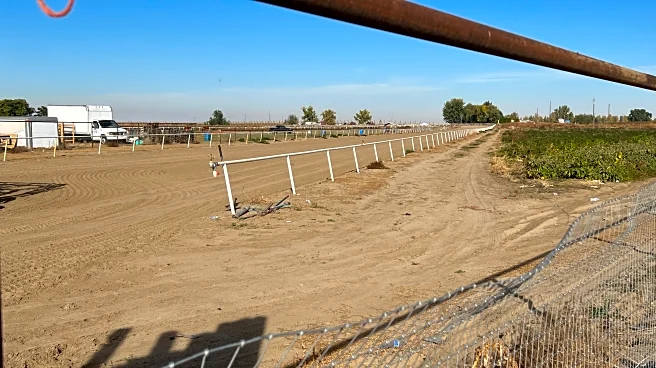What's Happening?
George Atkinson, a former safety for the Raiders known for his hard-hitting style, has died at the age of 78. The Raiders announced his death but did not disclose the cause. Atkinson had previously revealed
symptoms consistent with CTE in a 2016 interview. He was a key player in the Raiders' 'Soul Patrol' secondary during the 1970s, contributing to the team's first Super Bowl victory. Atkinson played 144 games over his career, primarily with the Oakland Raiders, and was known for his physical play and significant contributions to the team. His career included 33 interceptions, ranking him fourth all-time for the Raiders. Atkinson's legacy extends beyond his playing days, as he remained a mentor and friend within the Raiders organization.
Why It's Important?
George Atkinson's passing marks the loss of a significant figure in NFL history, particularly for the Raiders. His style of play and contributions to the team's success in the 1970s helped shape the identity of the Raiders as a formidable team. Atkinson's career highlights the physical nature of football during his era and raises awareness about the long-term health impacts faced by players, such as CTE. His influence extended beyond the field, as he continued to impact the Raiders organization and its community. The loss of Atkinson also brings attention to the personal tragedies he faced, including the deaths of his twin sons, which underscores the personal challenges athletes may encounter.
What's Next?
The Raiders and the NFL community are likely to honor Atkinson's legacy through tributes and memorials. His passing may also prompt further discussions on player safety and the long-term health effects of football, particularly concerning CTE. The NFL may continue to explore ways to improve player safety and support former players dealing with health issues. Additionally, Atkinson's story could inspire initiatives to support athletes facing personal and mental health challenges, reflecting on the broader responsibilities of sports organizations to their players.
Beyond the Headlines
Atkinson's career and life story highlight the cultural and ethical dimensions of professional football, including the balance between the sport's physical demands and player safety. His experiences with CTE symptoms and personal losses may contribute to ongoing debates about the responsibilities of sports leagues in addressing player health and well-being. The narrative of Atkinson's life also serves as a reminder of the human aspects behind the sport, emphasizing the need for comprehensive support systems for athletes both during and after their careers.










